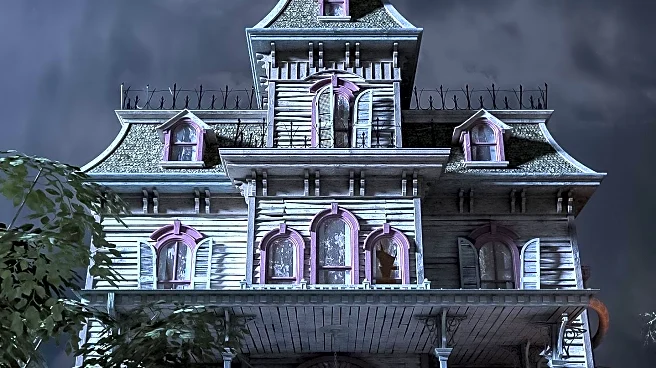What's Happening?
Across the United States, travelers are increasingly drawn to hotels with haunted histories, seeking unique experiences that blend luxury with the supernatural. These hotels, once sites of grim events such as prisons or hospitals, have been transformed
into destinations offering paranormal tours and themed events. Notable locations include the Algonquin Hotel in New York, known for its ghostly encounters, and the Crescent Hotel and Spa in Arkansas, dubbed 'America's most haunted hotel.' These establishments capitalize on their eerie pasts to attract guests interested in history and the paranormal.
Why It's Important?
The trend of visiting haunted hotels reflects a growing consumer interest in experiential travel, where guests seek more than just accommodation. This shift has significant implications for the hospitality industry, as hotels leverage their unique histories to differentiate themselves in a competitive market. By embracing their pasts, these hotels can attract a niche audience of ghost hunters and history enthusiasts, potentially increasing occupancy rates and revenue. The phenomenon also highlights the broader cultural fascination with the supernatural and the ways in which history and storytelling can enhance the travel experience.
Beyond the Headlines
The popularity of haunted hotels raises questions about the ethical considerations of commercializing sites with dark histories. While these locations offer intriguing experiences, they also serve as reminders of past tragedies and the individuals affected by them. Balancing the desire for entertainment with respect for history and those who suffered is a challenge for hotel operators. Additionally, the trend underscores the importance of preserving historical sites, as these hotels often play a role in maintaining and sharing local heritage with visitors.















